Monday, May 16, 2011
Pakistan: Cotton further plunges to Rs 8,500 per maund
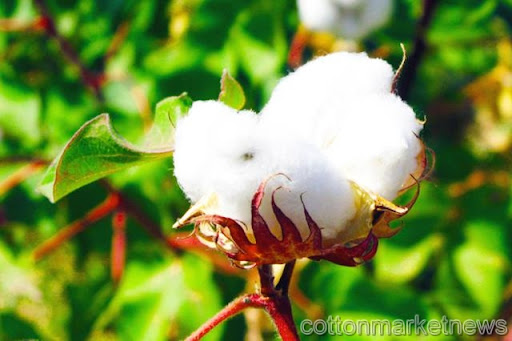 Karachi—Cotton price has plunged by Rs 500 to Rs 8,500 per maund this week, mainly due to slow buying from cotton mills and exporters, brokers said on Saturday. Member of Cotton Brokers and Advisory Committee Amir Naseem said that the market has witnessed a declining trade in cotton since past few weeks.
Karachi—Cotton price has plunged by Rs 500 to Rs 8,500 per maund this week, mainly due to slow buying from cotton mills and exporters, brokers said on Saturday. Member of Cotton Brokers and Advisory Committee Amir Naseem said that the market has witnessed a declining trade in cotton since past few weeks.
This week, though spinners and exporters are taking interest in local cotton, the weak sentiments still persisted in the market, he added.
He said spot rates of Karachi Cotton Association (KCA) has been fallen by Rs 500 per maund to Rs 8,500 per maund on May 14, 2011. Amir said that cotton prices have also fallen in China and India during this period. Meanwhile, cultivation for new crop was in full swing in the country as the government has fixed a higher target of 15 million bales for the next season. Similarly, other cotton growing countries have also raised their cultivated area.
Cotton prices ranged between Rs 7,500 to Rs 8,500 per maund in Sindh and Punjab while low quality at Rs 6,500 to Rs 7,000 per maund, he added. Good quality phutti price was in a short quantity and is being sold in the range of Rs 2500 to Rs 3,000 per 40 kg while binola price also closed lower at Rs 1,050 to Rs 1,000 per maund in Sindh. He said cotton prices have heavily declined in China and India. NY Cotton futures are also under pressure as crops from Australia, Argentina and Brazil are in the market.
Indian Cotton Traders Call for More Exports
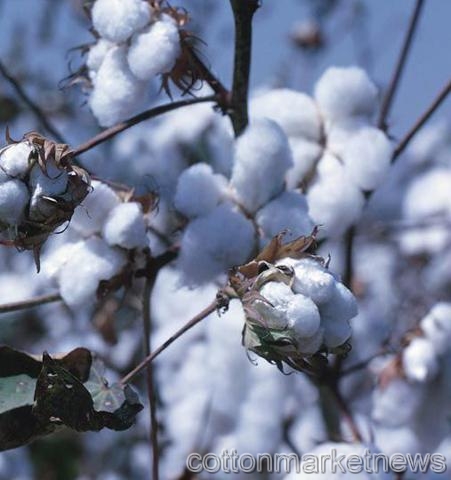 NEW DELHI – Indian traders are demanding more cotton exports after local prices tumbled more than 25% in the past month, with cash-strapped textile mills slowing purchases, senior trade and industry officials said Monday.
NEW DELHI – Indian traders are demanding more cotton exports after local prices tumbled more than 25% in the past month, with cash-strapped textile mills slowing purchases, senior trade and industry officials said Monday.
Domestic cotton prices fell to 44,000 rupees ($980.76) per 356 kilograms as of May 13 from 58,800 rupees a month ago. India, the world's second-largest cotton supplier, has fixed the cotton export quota for the year to Sept. 30 at 5.5 million bales, but traders have already shipped the entire approved quantity.
Local textile mills have been opposing higher cotton exports as they say that it could lead to a domestic shortage, but traders say the local market is swamped with cotton as mills are not buying.
"Let there be no cap on export quantity. Let everybody [exporters and mills] compete and buy cotton from farmers," Cotton Association of India President Dhiren Sheth said.
The traders' body plans to soon write to the government, asking it to lift the cotton export ceiling of 5.5 million bales for 2010-11, he added.
Last week, Trade Secretary Rahul Khullar said a ministerial panel will decide whether to allow more cotton exports. He didn't elaborate.
Global cotton stockpiles are at multi-year lows and large producers such as China and Pakistan are increasingly turning to India for supplies to keep their textile mills running after floods cut their crops.
The farm ministry has also been pushing for additional exports of 1.5 million bales during 2010-11 to help farmers maximize returns, but the textile ministry--the central ministry for cotton distribution--says more exports will jeopardize efforts to keep supplies steady for local textile mills.
"Many textile mills had to stretch themselves to buy the raw material when the prices were very high earlier this year. Now, they don't have much working capital to continue with the buying, so domestic prices have fallen," said D.K. Nair, the secretary general of the Confederation of Indian Textile Industry.
Further exports would worsen the situation for textile mills struggling to secure supplies, he added.
(Source: http://online.wsj.com/article/SB10001424052748703421204576326802743903930.html?mod=googlenews_wsj)
Cotton futures may adversely impact textile sector – expert
The recent permission given by the Securities and Exchange Commission of Pakistan (SECP) to the Pakistan Mercantile Exchange Limited (PMEX) for introduction of the futures contract in cotton may negatively impact the textile sector, according to an expert from the Pakistan textile industry.
The decision to grant approval to the PMEX was taken unilaterally by the SECP without consulting any major stakeholder from the export-oriented textile sector.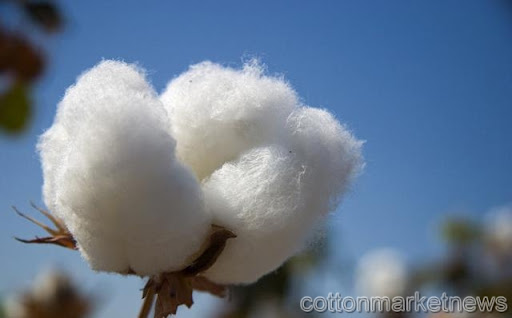
Since the buying share of textile sector in total cotton crop stands at 95 percent, it would have been natural for the SECP to consult the major stakeholders from the Pakistan textile industry and seek their feedback.
But, the representatives of All Pakistan Textile Mills Association (APTMA), Karachi Cotton Exchange (KCE), Karachi Cotton Association (KCA), and Pakistan Cotton Ginners Association (PCGA) were not consulted.
It may be noted here that cotton and its allied products account for about 66 percent of Pakistan’s export earnings and hence it is often termed as the backbone of the Pakistan’s economy.
Moreover, the marketing of cotton involves a tremendous business risk. Hence, it is necessary to have some kind of price insurance to reduce the risk of volatile fluctuations in prices.
An official of SECP, however, has disclosed that no final decision would be taken on the matter without consulting all segments of the cotton and textile sectors. He added that efforts are being made to gather all stakeholders on a single platform to discuss the effects of granting permission to PMEX.
(Source: http://www.fibre2fashion.com/news/textile-news/newsdetails.aspx?news_id=98808)
Cotton price crash resulting in human tragedy in India
 Three cotton farmers have committed suicide since Friday in the Vidarbha region in central India.
Three cotton farmers have committed suicide since Friday in the Vidarbha region in central India.
In speaking to this scribe from India at 11 AM US CST on May 15th, Mr. Kishor Tiwari, President of Vidarbha Jan Andolan Samiti (VJAS), a farmer support group said, 2 farmers committed suicide on this past Friday and one farmer committed suicide on this past Saturday. Farmers in anticipation of higher prices were stocking-up the crop but the market has crashed in India resulting in human tragedy. Farmers are committing suicides due to farming debts and increase in cotton cultivation costs.
Despite record production expected this year in India which is pegged at 32 million bales (170 kg each), Indian government has imposed a quota of 5.5 million bales for export. Farmers are not getting international prices for their harvest. Recently, even traders in local markets are seriously affected, said Mr. Tiwari. Mr. Tiwari blamed the Ministry of Textiles, India for imposing the export quota.
Indian market has been crashing for the past few days. Good quality cotton lint price has come down by over 50%. On Friday, May 13th, quality cotton traded at Rupees 38,000 per candy (356 kg). Tiwari said, last month farmers were getting Rupees 7,000 per quintal (100 kg) for seed cotton, which has crashed now to Rupees 3,200 per quintal (100 kg).
Mr. Tiwari said that he will be leading a delegation of 100 farmers and few farm industry leaders to meet with Mrs. Sonia Gandhi Chairperson of the United Progressive Alliance, the coalition group which runs the Government of India on May 20th in New Delhi. The group is planning on a hunger strike if the talks do not take place as planned.
When pressed by this scribe, Mr. Tiwari reiterated that it is a fact that three deaths have happened in the past two days due to cotton situation in the Vidarbha region in the State of Maharashtra, India. Vidarbha region constitutes about 25% of India cotton cultivation with 22 lakh (2.2 million) hectares planted on an average.
(Source: http://www.fibre2fashion.com/news/textile-news/newsdetails.aspx?news_id=98811)
Cotton futures may adversely impact textile sector – expert
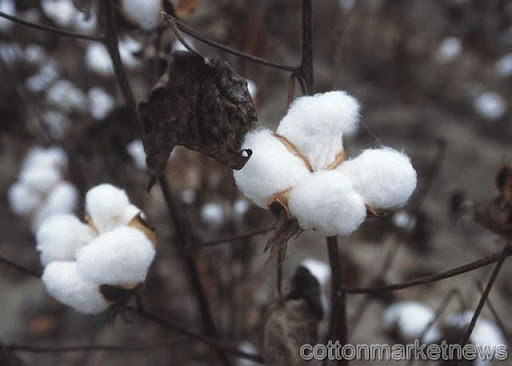 The recent permission given by the Securities and Exchange Commission of Pakistan (SECP) to the Pakistan Mercantile Exchange Limited (PMEX) for introduction of the futures contract in cotton may negatively impact the textile sector, according to an expert from the Pakistan textile industry.
The recent permission given by the Securities and Exchange Commission of Pakistan (SECP) to the Pakistan Mercantile Exchange Limited (PMEX) for introduction of the futures contract in cotton may negatively impact the textile sector, according to an expert from the Pakistan textile industry.
The decision to grant approval to the PMEX was taken unilaterally by the SECP without consulting any major stakeholder from the export-oriented textile sector.
Since the buying share of textile sector in total cotton crop stands at 95 percent, it would have been natural for the SECP to consult the major stakeholders from the Pakistan textile industry and seek their feedback.
But, the representatives of All Pakistan Textile Mills Association (APTMA), Karachi Cotton Exchange (KCE), Karachi Cotton Association (KCA), and Pakistan Cotton Ginners Association (PCGA) were not consulted.
It may be noted here that cotton and its allied products account for about 66 percent of Pakistan’s export earnings and hence it is often termed as the backbone of the Pakistan’s economy.
Moreover, the marketing of cotton involves a tremendous business risk. Hence, it is necessary to have some kind of price insurance to reduce the risk of volatile fluctuations in prices.
An official of SECP, however, has disclosed that no final decision would be taken on the matter without consulting all segments of the cotton and textile sectors. He added that efforts are being made to gather all stakeholders on a single platform to discuss the effects of granting permission to PMEX.
(Source: http://www.fibre2fashion.com/news/textile-news/newsdetails.aspx?news_id=98808)
Karnataka traders demand free cotton exports
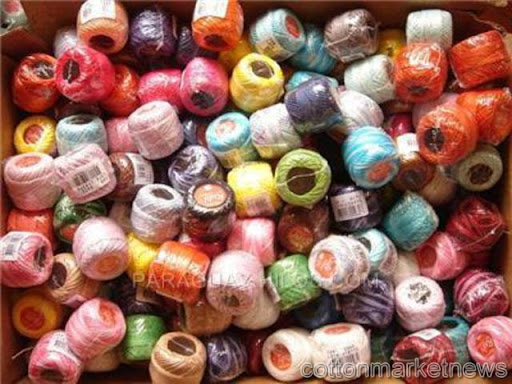 The sudden fall in prices of cotton has left farmers and traders of Hubli in Karnataka in deep trouble. Cotton growers and traders are asking the Union Government to allow free export of cotton.
The sudden fall in prices of cotton has left farmers and traders of Hubli in Karnataka in deep trouble. Cotton growers and traders are asking the Union Government to allow free export of cotton.
They have also condemned the State government for increasing tax from 4 percent to 5 percent and held protest rallies at various places from their respective Agricultural Produce Market Committees (APMCs) and submitted memoranda to the tehsildars.
Cotton traders have decided to stay away from trading in cotton until amendments in the export policy are made by the Union Government.
(Source: http://www.fibre2fashion.com/news/textile-news/newsdetails.aspx?news_id=98804)









